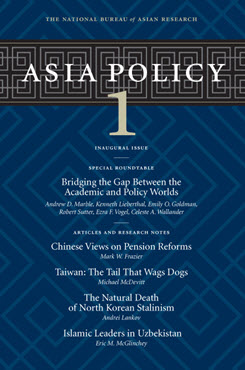Islamic Leaders in Uzbekistan
This report analyzes the degree to which Uzbekistan’s Islamic elite are loyal to the Uzbek government.
EXECUTIVE SUMMARY
MAIN ARGUMENT
Competing incentive structures determine how Uzbekistan’s Islamic elite respond to the state. Whereas political elites respond to patronage flows from the top, independent Islamic leaders in Uzbekistan are supported by Uzbek society, and it is to society’s demands—and not those of President Islam Karimov or the state—that Uzbekistan’s imams (local religious leaders) respond.
POLICY IMPLICATIONS
The United States should be aware that, despite the current Uzbek government’s attempt to equate independent Islam with militant Islam, both forms of Islam are present in Uzbekistan and both forms pose threats to the Karimov regime’s continued legitimacy and stability:
- Militant Islamists seek the forcible overthrow of the Karimov government and its replacement with an Islamic caliphate.
- Independent Islamic leaders, by rejecting government propaganda and providing the general population sanctuary from authoritarian rule in their mosques and communities, are allies for those who seek political reform in Uzbekistan.
About Asia Policy
Asia Policy is a peer-reviewed scholarly journal presenting policy-relevant academic research on the Asia-Pacific that draws clear and concise conclusions useful to today’s policymakers. Asia Policy is published quarterly in January, April, July, and October and accepts submissions on a rolling basis. Learn more


